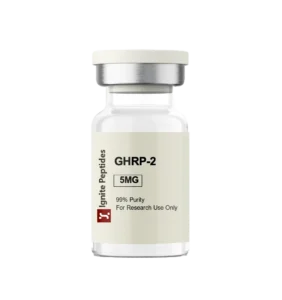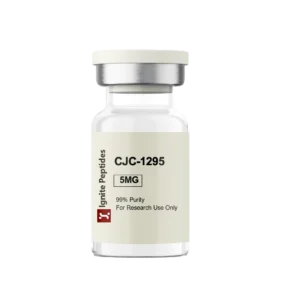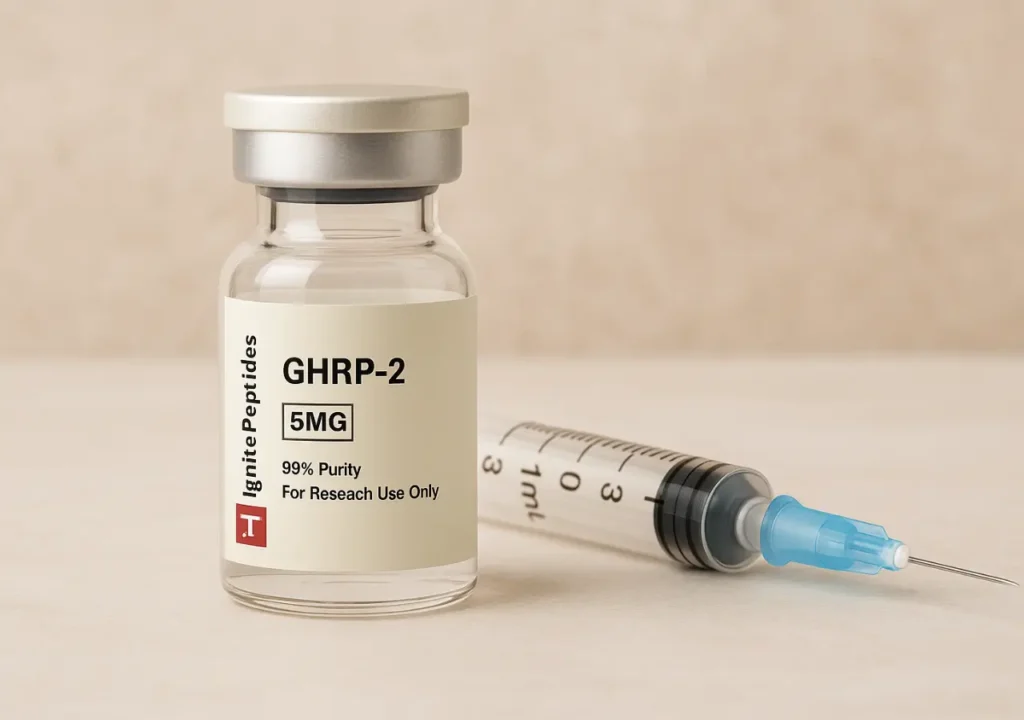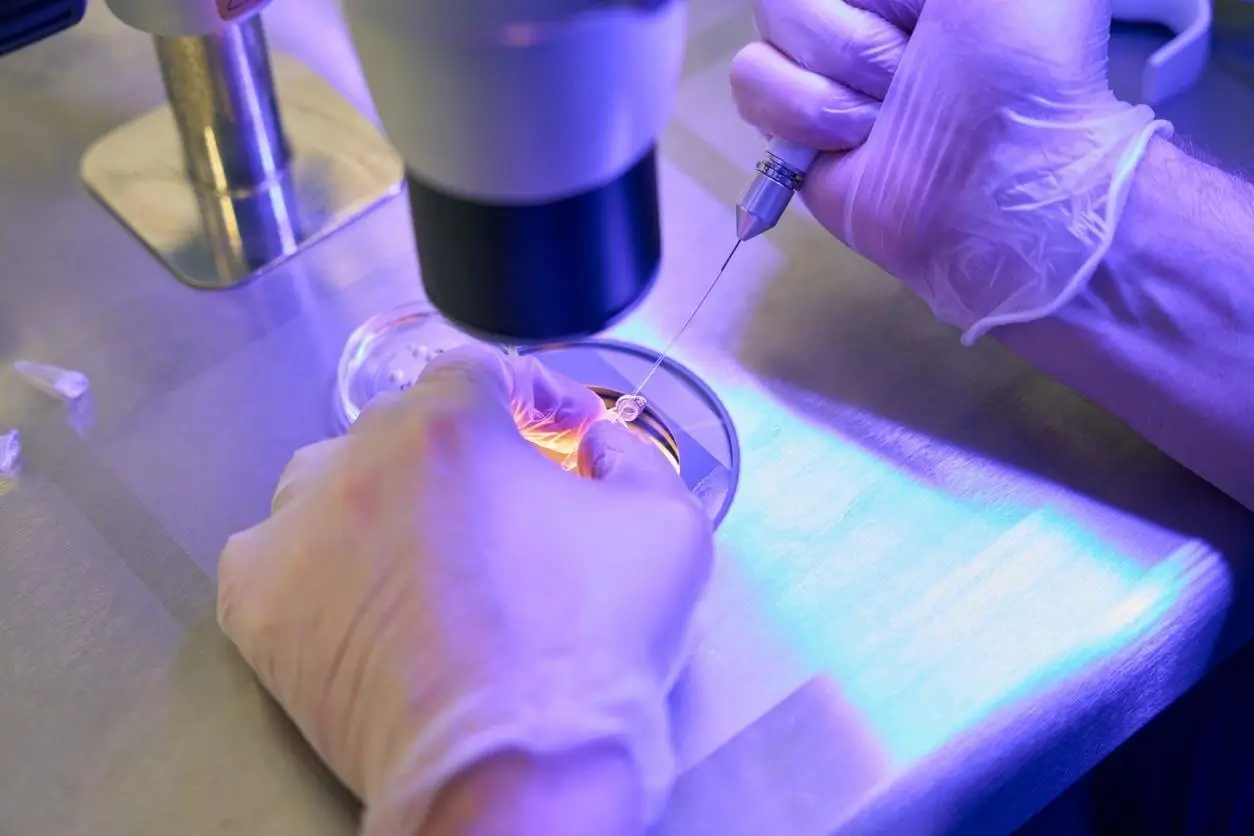Unlocking Growth: The Science Behind GHRP Peptides
Unlocking Growth: Understanding GHRP Peptides and Their Benefits
In recent years, people have been looking for new ways to improve their health and fitness. One option that is getting a lot of attention is GHRP peptides. These peptides help release growth hormone, which is important for muscle growth, fat loss, and recovery.
But what exactly are GHRP peptides, and how do they work? In this article, we will explain the science behind them. We will also look at their benefits and how they can help you improve your health and fitness.

How GHRP Peptides Work: Boosting Growth Hormone
GHRP peptides work by helping the body release growth hormone. They do this by attaching to receptors in the brain. When these receptors are activated, the brain sends a signal to the pituitary gland to release growth hormone. This also helps the body make more insulin-like growth factor 1 (IGF-1). IGF-1 is important for muscle growth and recovery.
GHRPs also block the action of somatostatin, a hormone that normally stops growth hormones from being released. By blocking somatostatin, GHRPs help create a better environment for growth and recovery.
Here are some benefits of GHRP peptides:
- Helps control appetite: GHRPs help you feel fuller and can make you eat healthier foods.
- Improves sleep: More growth hormone leads to better sleep, which helps muscles recover.
- Has anti-ageing effects: GHRPs support skin health and tissue regeneration. This makes them a popular choice for anti-ageing.

GHRP Peptides and Muscle Growth: A Game Changer for Athletes
Athletes and fitness lovers often use GHRP peptides to build muscle and recover faster. These peptides help the body make more growth hormone, which is needed for muscle growth. They also help burn fat, leading to better body composition.
Besides helping muscles grow, GHRPs also help you recover faster and improve endurance. This is why they are popular among athletes who want to perform better. Here are some of the benefits for athletes:
- More endurance: GHRPs can increase your energy and allow you to work out longer and harder.
- Better muscle repair: GHRPs help muscles heal faster after exercise.
- Stronger immune system: These peptides help protect the body from illness, speeding up recovery.
- Better sleep: Higher growth hormone levels mean deeper sleep, which is important for muscle repair
Here’s a quick comparison of GHRP peptides and traditional recovery methods:
Method | Muscle Growth | Recovery Time | Fat Loss |
GHRP Peptides | High | Fast | More |
Traditional Methods | Moderate | Standard | Low |
Safe Use of GHRP Peptides: Simple Guidelines
GHRP peptides may support fitness and recovery, but safe use is key. Always take a careful and informed approach.
Before You Start:
- Talk to a doctor: Always check with a healthcare provider first.
- Start small: Begin with a low amount and see how your body reacts.
- Be consistent: Use at regular times based on your provider’s advice.
- Watch for changes: Track how you feel, sleep, and recover.
How They’re Used:
- Injected under the skin: GHRPs are given as subcutaneous injections.
- Clean the area: Use an alcohol wipe before each injection.
- Rotate spots: Change injection sites to avoid skin irritation.
- Store safely: Keep peptides in a fridge or cool place to protect them.
Important Reminder:
There is no universal dose. Age, goals, and health conditions all affect how GHRPs should be used. Only a medical professional can guide you safely.
Future of GHRP Peptides: More Uses on the Horizon
Scientists are still studying GHRP peptides and finding new ways to use them. One exciting area of research is regenerative medicine. GHRPs help treat age-related diseases and injuries by encouraging the body to grow new tissues. They could also help with chronic conditions.
Researchers are also working on new ways to deliver GHRPs more effectively. Nanoparticles can help target peptides more precisely. This may reduce side effects and boost their effectiveness.
Another exciting development is studying how GHRPs work with other hormones. This could lead to treatments for obesity, metabolic disorders, and stress. As scientists learn more, GHRPs could become an important tool in medicine and wellness.
Conclusion:
GHRP peptides are an exciting way to improve health and fitness and even treat medical conditions. They work by increasing growth hormone levels, which helps with muscle growth, fat loss, and recovery. However, it’s important to use them with caution. Always consult a healthcare provider before starting any new supplement.
As more research is done, we may see even more uses for GHRP peptides. GHRPs may enhance athletic performance. They can help you recover faster. Overall, they support better health on your wellness journey. Stay informed and take advantage of the latest science to boost your wellness.


